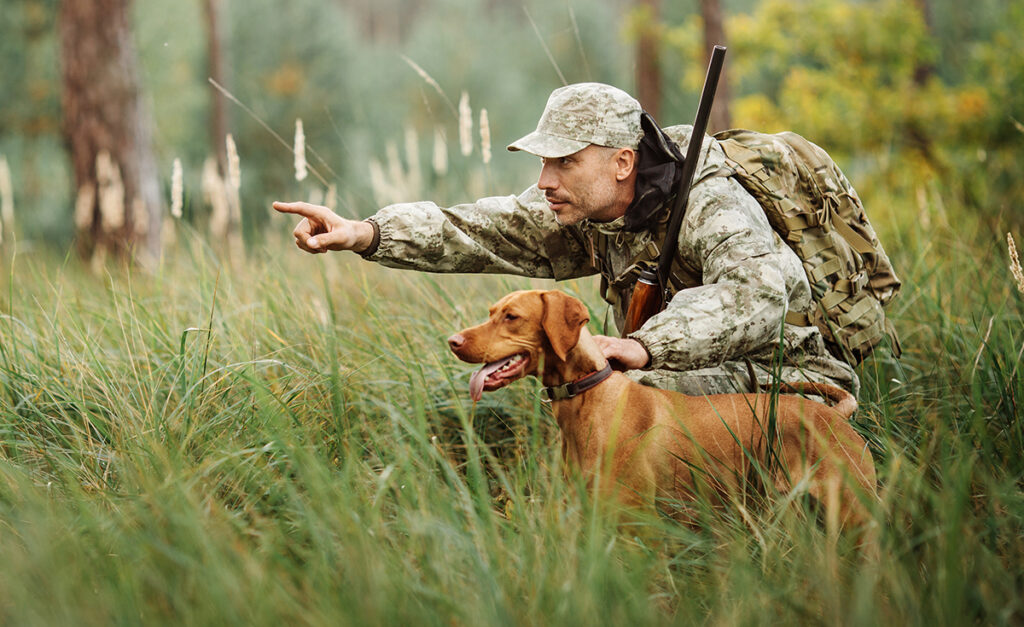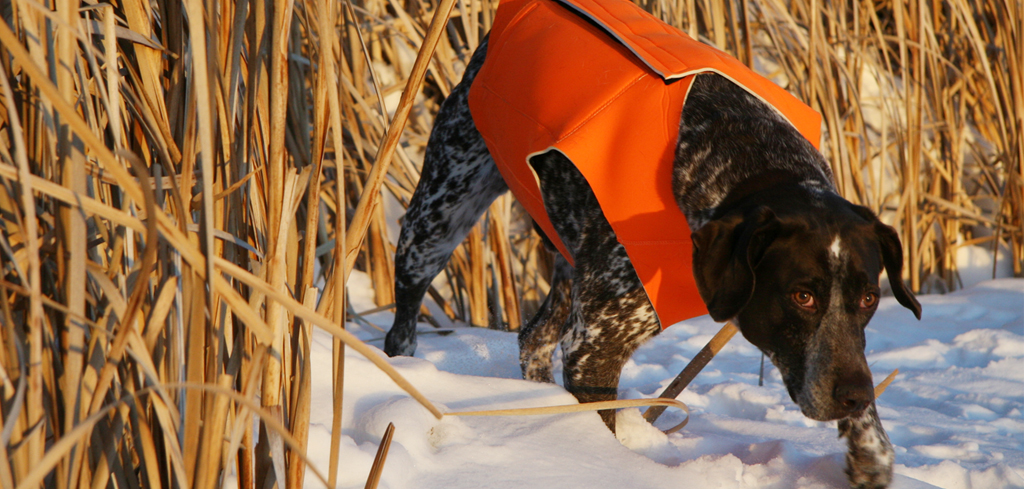Top Tips for Hunting Dog Training
Hunting with your dog is a rewarding way to experience the great outdoors with your furry friend. Dogs have been hunting alongside humans for centuries, and many hunting breeds were bred to find, flush out, or retrieve game. However, training your dog to be a skilled hunting companion requires time, effort, and proper guidance.
In this comprehensive guide, we will explore the essential steps and techniques involved in training a hunting dog. Whether you’re a first-timer or a long-time hunter, this guide will help provide you with the tips and tools to train your dog.

Understanding the Importance of Training
Before heading out on a hunting trip with your dog, it’s crucial to recognize the significance of proper training. Training your dog not only helps them become skilled at locating and retrieving game but also prepares them for challenges or obstacles they may encounter in the field. Additionally, training allows you to establish a strong bond with your dog and helps to ensure their safety during hunting trips. By investing time in training, you can enhance your dog’s abilities and create a happy hunting partnership.
The Fundamentals of Gun Training
Gunshots can be loud and startling for dogs, potentially causing them to become fearful or run off during a hunt. Therefore, gun training is an important aspect of preparing your hunting dog. One recommendation is to gradually acclimate your dog to gunshots by adding them into training exercises.
Start by having a designated shooter fire a shot as the dog leaves to make a retrieve. With each retrieve, the shooter should gradually move closer to the handler and dog. Reward your dog with praise or treats as they become more comfortable with the sound of gunshots. This gradual approach helps your dog associate gunshots with positive experiences and gradually reduces their fear or anxiety.
Developing Game-Locating Skills
Obedience training serves as the foundation for all other training aspects. A well-trained dog should be able to follow basic commands such as sit, stay, and recall. These basic commands provide the necessary control for your dog to navigate the excitement of a hunting trip successfully. Start training your dog in basic obedience from an early age, typically around eight weeks old. This enables them to acquire the essential skills and physical capability required to manage more complex training duties in the future.
To teach your dog to locate and flush out game, consider adding quartering drills into your training routine. In quartering drills, dogs are trained to move in a zigzag pattern in front of their owners.This pattern allows them to cover more ground and locate game more effectively than simply walking in a straight line. Set up bumpers or markers to guide your dog in this pattern, and use slight arm movements to direct their path. Remember to praise or reward your dog after each successful quartering drill. Check out this great training video from Lone Duck Outfitters & Kennels.
Retrieval Training for Hunting Dogs
Retrieving game is a very important skill for hunting dogs, and proper training is important to ensure they can effectively retrieve game in various terrains and scenarios. Start by simulating hunting scenarios using decoys or training dummies. Repeat the training exercises on both land and water to help get your dog used to different environments.
For example, you can have a bird boy launch a bumper into the air, imitating a falling bird, and have your dog retrieve it. This exercise helps your dog learn to mark the location of fallen birds and retrieve them.
Blind retrieve training is another important aspect of retrieval training. It involves guiding your dog to a fallen bird that they may not have seen fall. This requires diligent training to teach your dog to respond to whistles or hand signals. By mastering blind retrieve training, your dog will become skilled at locating and retrieving game even when they cannot see the bird’s fall.
Evaluating Hunting Skills and Reinforcing Training
Before heading out on a hunt, it’s beneficial to evaluate your dog’s hunting skills and reinforce their training through various events and tests. Participating in Retriever Field Trials and hunting tests, such as those organized by the American Kennel Club (AKC), can provide insight into your dog’s performance in the field.
These events are designed to showcase a dog’s skills and instincts specific to their breed, whether they are Pointers, Retrievers, or Spaniels. Participating in these events not only helps assess your dog’s readiness for hunting but also keeps them active and in shape during the off-season.
Essential Hunting Gear for Your Dog
While on a hunt, it’s crucial to equip your dog with the necessary gear to ensure comfort and safety. You might consider investing in items such as a first-aid kit, including bandaging materials and wound care items. Additionally, for waterfowl hunting, a buoyant vest can provide added safety for your retriever.
Other essential gear includes hunting blinds or elevated stands to protect your dog from the elements and provide them with a warm and secure space. Bringing cleaning supplies to give your dog a quick bath in the field can help prevent any unwanted odors especially if there was an unfortunate encounter with a skunk. Lastly, don’t forget to outfit your dog with an easily-seen orange safety vest to ensure added visibility during hunts.

Choosing the Right Hunting Dog Breed
When considering training a hunting dog, it’s essential to choose the right breed that aligns with your hunting preferences and lifestyle. Different breeds excel in specific types of hunting, such as upland game, waterfowl, or tracking. Some popular hunting dog breeds include Labrador Retrievers, German Shorthaired Pointers, Golden Retrievers, and English Springer Spaniels.
It’s important to research the characteristics of various hunting dog breeds to find the one that best suits your needs. Remember that each breed has unique qualities, and selecting the right breed is important to successful hunting dog training.
Helpful Tips for Training a Hunting Dog
Training a hunting dog requires patience, consistency, and a deep understanding of your dog’s needs. Here are some helpful tips to keep in mind:
- Start training your dog from a young age to establish good habits and build a strong foundation.
- Use positive reinforcement techniques such as praise, treats, and rewards to motivate and encourage your dog during training sessions.
- Gradually expose your dog to different hunting environments, sounds, and scenarios to ensure they remain calm and focused during hunts.
- Consistency is key. Stick to a regular training schedule and reinforce commands consistently to reinforce your dog’s understanding.
- Practice obedience training in various settings and distractions to ensure your dog responds reliably to commands.
- Seek professional guidance if you encounter challenges or feel overwhelmed during the training process. A professional trainer can provide expert advice and support.
- Remember that training is an ongoing process. Even after your dog becomes proficient, continue practicing and reinforcing their skills regularly to maintain their abilities.
- Prioritize your dog’s safety by using appropriate hunting gear, providing proper nutrition and hydration, and regular veterinary care.
- Build a strong bond with your hunting dog by spending quality time together outside of training sessions. Play, exercise, and socialize with your dog to strengthen your relationship.
- Enjoy the journey and have fun with your hunting dog. Training a dog is a rewarding experience that deepens the bond between you and your canine companion.
Conclusion
Training a hunting dog is a fulfilling and rewarding opportunity that requires dedication, a lot of patience, and a genuine love for the sport. By following the steps outlined in this guide, you can lay the foundation for a skilled and reliable hunting companion. Remember to prioritize your dog’s well-being and safety throughout the training process, and always seek professional guidance when needed. With the right training and care, your hunting dog will become an important partner on your outdoor adventures.
SPORTMiX offers targeted nutrition for your hunting dog so be sure to check out all of our original and premium dog food recipes, that are all made in our family-owned kitchens located in the USA!

